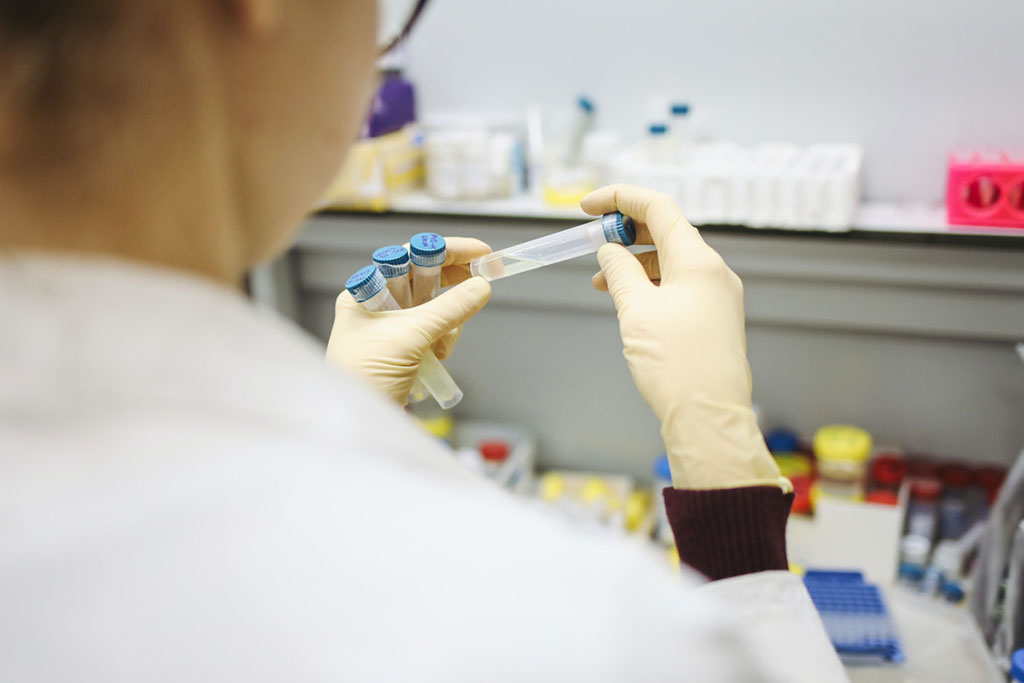First-of-Its-Kind Testing Device Allows For Rapid Detection of Bacteria That Identify Risk for Preterm Birth
Posted on 14 Oct 2021
A newly-developed cost-effective device can rapidly and accurately detect changes in vaginal bacteria and corresponding immune responses in pregnant women, which are associated with increased risk of preterm birth.
The first-of-its-kind testing device developed by researchers at the March of Dimes Prematurity Research Center at Imperial College London (London, UK) may help advance diagnosis and treatment of preterm birth by facilitating faster clinical decision-making and helping improve targeted treatment strategies during pregnancy.

Preterm birth remains a major cause of death worldwide in children under age five. One of the many factors that contribute to a woman's risk of preterm birth is changes during pregnancy to the type and amounts of microbes in the lower reproductive tract, referred to as the vaginal microbiome. In some women, certain bacteria from the microbiome can cause inflammation leading to an increased risk of preterm birth. The new testing device called direct-on-swab metabolic profiling by Desorption Electrospray Ionization Mass Spectrometry (DESI-MS), rapidly analyzes chemicals in a clinical swab to simultaneously determine the type of bacteria in the vagina, and corresponding immune or inflammatory response to the bacteria.
The two-minute test was found to be just as effective as 'gold standard' chemical profiling tests (e.g. Liquid Chromatography-Mass Spectrometry assays) that require detailed sample preparation and extraction making them more time consuming (up to eight hours per assay), costly and difficult to introduce into routine bedside testing. The ability to monitor the vaginal microbiome and inflammation throughout pregnancy with DESI-MS could help identify women at risk of preterm birth sooner, potentially allowing obstetricians to monitor these women more closely and start preventative treatments earlier and in a more targeted way than currently possible.
The researchers tested the direct-on-swab DESI-MS device by analyzing more than 1,000 samples collected from two independent groups of pregnant women (about 400 women in total) in the UK. The data found that women who had changing and diverse vaginal microbiomes (those that contained many different bacteria or had bacteria that changed during pregnancy) had higher rates of preterm birth and were more likely to have increased inflammation. The test also detected inflammation caused by some treatments received during pregnancy (e.g. a stitch put into the cervix for 'cervical cerclage' treatment). This inflammation was most frequently observed in women subsequently experiencing preterm birth.
The device may have broader application to other areas of women's health where the vaginal microbiome has been implicated, including bacterial vaginosis, HIV and HPV infection, cervical dysplasia, IVF failure and miscarriage. The researchers now plan to register the technology and seek regulatory approval for its use in the UK and Europe and, eventually, in North America. They also are planning development of a miniature version of the test that can be used more widely in clinics and would allow for bedside testing.
"We've known for some time that the vaginal microbiome can contribute to the risk of preterm birth, but now we have developed a device which in just a few minutes can report both the microbiome composition and inflammatory status of a sample collected during pregnancy," said Dr. David MacIntyre, Reader in Reproductive Systems Medicine, Institute of Reproductive and Developmental Biology Department of Metabolism, Digestion and Reproduction at Imperial College London. "This is the first rapid testing device of its kind and could be readily transferred to use in a clinical setting. This information could be used by doctors and patients to monitor risk of preterm birth but also to help optimize treatments, such as more selective use of antibiotics."
Related Links:
Imperial College London













